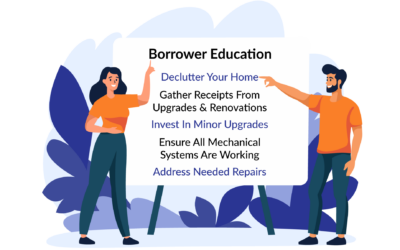Shopping for a new home? It may not be as easy as hoped. Those wanting to buy will quickly find there are homes for sale, but not nearly enough. The high demand for housing is only accelerating home prices meaning potential buyers are struggling to afford down payments. One reason for the lack of inventory is homebuilders are not operating at historically normal production levels, nor are they shifting significantly to entry-level, more affordable models.
Add all these current dynamics together, and the sum casts a long shadow over the U.S. housing market — and two more this fall could make matters even worse.
First, mortgage interest rates may finally move higher. Yes, they have been sitting at year-lows for nearly a month. Uncertainty in Washington over the president’s economic agenda, as well as volatility in overseas markets have combined to lure investors to the relative safety of the U.S. bond market, keeping yields low. Mortgage rates loosely follow the yield on the 10-year Treasury.
There are, however, other factors that influence interest rates. For one, the Federal Reserve is heavily invested in mortgage-backed securities — supporting the entire market since the housing crash — but it is about to shed much of that.
“Investors have been bracing for this balance sheet tapering business for a long time and, for the most part, a certain pace of tapering is already priced-in to today’s rates,” noted Matthew Graham, chief operating officer at Mortgage News Daily. Graham is more concerned about inflation.
“No, I’m not worried about ’70s-style hyperinflation — simply the small chance that inflation can manage a healthy enough rebound to steel the Fed’s resolve to tighten policy. If core inflation were to return above 2 percent and continue trending moderately higher, it would be a game changer for rates,” said Graham.
In addition to higher mortgage rates, potential homebuyers could also be facing a change in the mortgage interest tax deduction. While this tax break only benefits 20 percent of taxpayers, it has always been very popular in the emotional rhetoric of the housing market and therefore politically untouchable. That may be about to change. In one of his first interviews, Treasury Secretary Steve Mnuchin suggested the cap on the deduction, currently at $1 million of mortgage debt, could be reduced.
House Speaker Paul Ryan, R-Wis., told CNBC: “We recognize and acknowledge and believe you need to maintain the mortgage interest deduction. Whether it can be improved in how it works, that’s the decision and discussion we’ll have on an ongoing basis.”
Industry insiders have said that the conversation is already centered on cutting the deduction cap in half. Doing so would only affect about 4 percent of taxpayers who benefit from it but would slash 15 percent of the $77 billion cost to the government. That is because the vast majority of the tax benefit goes to higher-income taxpayers.
A change in the deduction would have “a rather small effect” on home values, according to Nobel Prize-winning economist Robert Shiller, who opined on it in an interview this week on CNBC’s “Power Lunch.”
For some taxpayers, a loss of the deduction could be offset by a change in the standard deduction. The deduction has always been sacrosanct because it is linked to the emotional and political rhetoric of homeownership being part of the “American dream,” but there are even bigger factors at play today.
“What’s really driving the real estate market is our sense of where we’re going and the uncertainty at the time with the new administration in Washington, and all this talk. These are bigger things than the mortgage interest deduction,” added Shiller.



